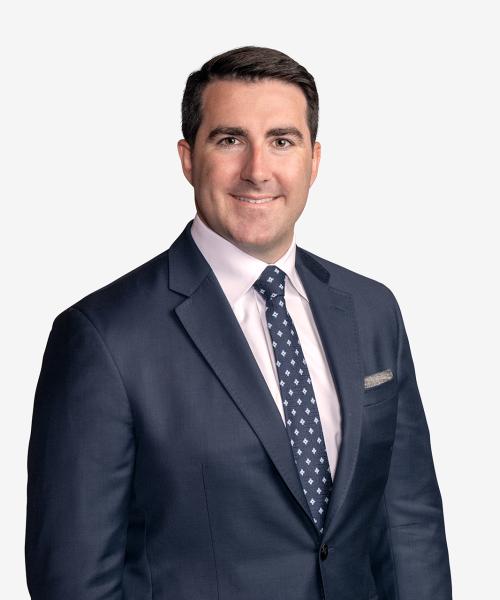Friday Enforcement Wrap: New DOJ Guidance on Corporate Monitors & More Headlines

DOJ News
New DOJ Guidance on Selection of Corporate Monitors
On October 11, Assistant Attorney General Brian Benczkowski issued guidance to Criminal Division attorneys regarding “Selection of Monitors in Criminal Division Matters.” The memorandum supersedes the 2009 “Breuer Memo” on the same subject, and supplements the 2008 “Morford Memo,” which addressed this subject in the context of Deferred Prosecution Agreements (DPAs) and Non-Prosecution Agreements (NPAs).
AAG Benczkowski noted in a recent speech that “[t]he goal of the new guidance is to further refine the factors that go into the determination of whether a monitor is needed, as well as to clarify and refine the monitor selection process.” In the same speech, he also suggested that DOJ would dispatch with the role of its Compliance Counsel, a position that since 2015 has resided in the Fraud Section.
Read the “Benczkowski Memo” here.
Indictment Charges Billion-Dollar Telemedicine Scheme
On October 12, a federal district court in Tennessee unsealed a 32-count indictment charging four individuals and seven companies, including compounding pharmacies, in a $1 billion telemedicine health care fraud scheme. Another individual and company pleaded guilty. The indictment alleges that defendants conspired to defraud insurers by soliciting insurance coverage information and prescriptions from consumers for prescription pain creams and similar products, misrepresenting them to prescribing physicians, and then massively marking up the price and billing private insurers.
Read the DOJ press release here.
Health Care CEO Pleads Guilty to $150 Million Opioid Fraud Scheme
On October 15, the Justice Department announced that the CEO of Tri-County Wellness Group, who owned and operated numerous pain clinics and laboratories in Michigan and Ohio, pleaded guilty to conspiracy and money laundering in connection with an alleged opioid fraud scheme involving medically unnecessary prescriptions paid for by Medicare. Defendant also agreed to forfeit more than $51 million, as well as more than $11.5 million of property.
Read the DOJ press release here.
Two Doctors and Three Nurses Sentenced in $11.3 Million Medicare Fraud Scheme
On October 16, two Dallas doctors and three nurses were sentenced to between six and 120 months in prison for their roles in an $11.3 million Medicare fraud scheme. The government alleged that Medicare beneficiaries were certified for medically unnecessary home-health services that often were not provided. Nurses allegedly falsified assessments and notes to make it appear as though Medicare beneficiaries were eligible for, and were provided, skilled nursing services.
Read the DOJ press release here.
Defense Contractor Agrees to Pay $3.5 Million to Resolve False Claims Act Allegations
On October 15, the Justice Department announced that Indal Technologies Inc. agreed to pay $3.5 million to settle False Claims Act allegations that it knowingly sold defective helicopter landing systems for use on US Navy destroyers. Indal, which has for decades produced landing systems for destroyers, allegedly substituted HY100 steel with a less expensive steel without telling the Navy, in violation of the contract.
Read the DOJ press release here.
Nomura to Pay $480 Million to Settle Civil RMBS Suit
On October 16, the US Attorney’s Office for the Eastern District of New York announced that Nomura Holdings America Inc. and certain affiliates have agreed to pay $480 million to resolve potential federal civil claims that, between 2006 and 2007, Nomura misled investors when marketing, selling, and issuing residential mortgage-backed securities (RMBS). The government alleged that Nomura knowingly securitized defective mortgage loans in its RMBS and misled investors as to the quality of those loans.
Read the DOJ press release here.
Litigation Developments
United States ex rel. Vaughn v. United Biologics, L.L.C.
In a sudden pivot, a Fifth Circuit panel withdrew its False Claims Act opinion from last month and replaced it with a new opinion that changed a key procedural holding. In the district court, after the government declined to intervene in a qui tam case, the relators moved for voluntary dismissal with prejudice as to themselves, but without prejudice as to the government. In September, the Fifth Circuit upheld this form of dismissal, which would have likely allowed the government to pursue the claims in a related litigation already pending in another district.
On October 16, the Fifth Circuit withdrew its opinion and replaced it with an opinion holding that, “because the Government never intervened in the case, and therefore never became a ‘party’ to the litigation, no dismissal as to the Government would be appropriate.” United States ex rel. Vaughn v. United Biologics, L.L.C., 2018 WL 5000074, --- F.3d --- (5th Cir. 2018). The court then held: “As for whether and to what extent the Government is bound by the qui tam relators’ voluntary decision to quit the case, that is a question to be answered by the court in” the related litigation brought in another district.
United States ex rel. Brasher v. Pentec Health, Inc.
On October 16, a federal district court in Philadelphia took the unusual step of rejecting the government’s eleventh request for an extension of the seal so that it could continue to investigate five-year-old allegations brought by a qui tam relator under the False Claims Act. See United States ex rel. Brasher v. Pentec Health, Inc., No. 13-05745, 2018 WL 5003474 (E.D. Pa. Oct. 16, 2018). The court ruled that the government failed to show good cause for the extension—which the government claimed would facilitate negotiations with the defendant—and observed that “courts have grown increasingly impatient with the Government’s repeated requests for extension of the seal in qui tam actions.”
United States v. Couch
A relator files a qui tam suit against a defendant, but the government declines to intervene and instead successfully prosecutes the allegations criminally. Can the relator intervene in the criminal forfeiture proceeding to obtain a share in the recovery? On October 17, the Eleventh Circuit held as a matter of first impression that the answer is no, ruling that the FCA’s alternate-remedies provision is silent on this question, but that the criminal-forfeiture provisions prohibit such intervention. See United States v. Couch, 2018 WL 5019480, --- F.3d --- (11th Cir. 2018).
HHS-OIG News
HHS-OIG Updates Work Plan
HHS-OIG updated its work plan this month, adding four new efforts:
- Monitoring compliance with criminal-background-check requirements established by the Child Care and Development Block Grant Act of 2014;
- Reviewing the early results of the Opioid State Targeted Response grants provided under the 21st Century Cures Act;
- Determining whether certain states made unallowable capitation payments to Medicaid MCOs on behalf of individuals who were incarcerated; and
- Reviewing controls in place in connection with distribution and implementation of Medicare Beneficiary Identifiers, which will replace Social Security Numbers on Medicare cards.
Contacts
- Related Practices




